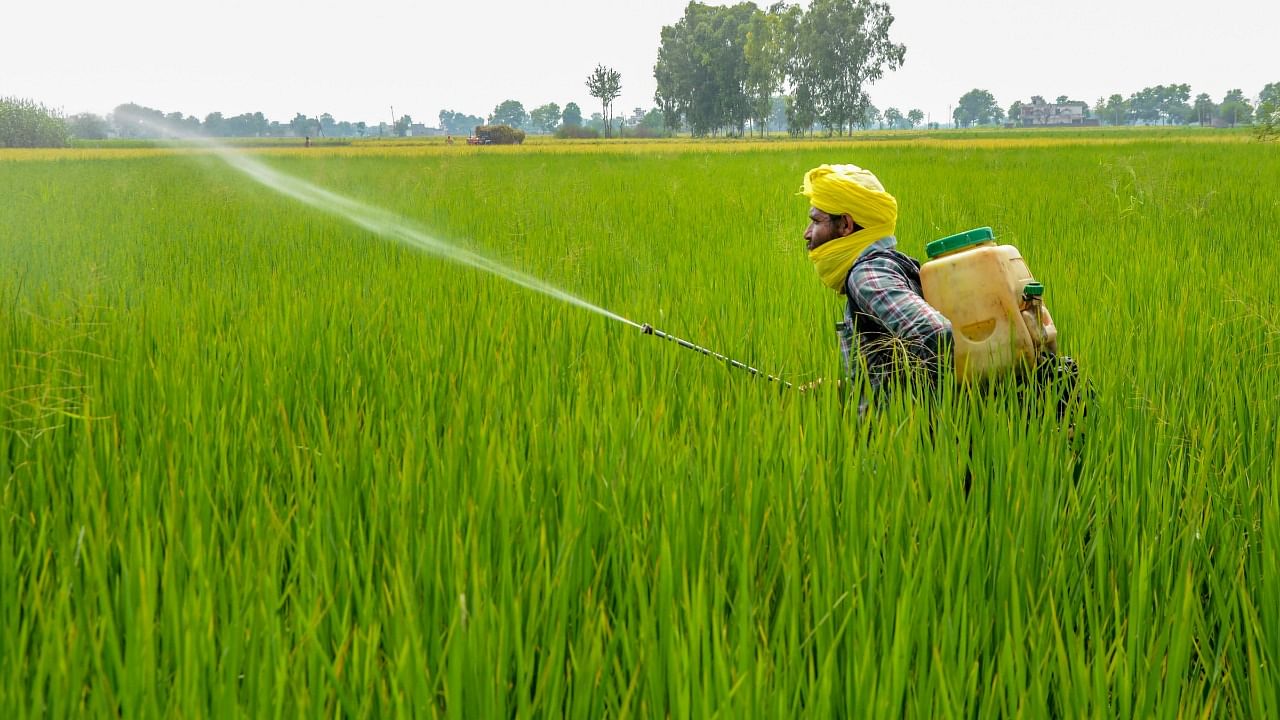
The just-concluded World Soil Science Congress in Glasgow, Britain, in August emphasised a crucial point that the world is losing much of its fertile land because of excessive soil degradation due to intense chemical farming, euphemistically known as the ‘Green Revolution’.
Millions of acres of land all over the globe are turning out to be unsustainable due to soil degradation. Global agriculture, including India, is at a crossroads. The highly soil-extractive agriculture, known as the Green Revolution, has run out of steam.
Of the 328.73 million hectares of the geographical area in India, as much as 120.40 million hectares (36.2% precisely) have degraded soil, thanks to the Green Revolution.
Punjab, the ‘cradle of the Indian Green Revolution’ is the best example. There are thousands of hectares in the state which are so degraded that they can be reclaimed only at a great cost.
The perpetual rice-wheat rotation, propped up by huge inputs of chemical fertilisers, pesticides and herbicides, has robbed the soil of its inherent fertility, namely soil carbon. Add to this, the consequence of excessive use of nitrogenous fertilisers, especially urea.
The issue of gaseous release of nitrous oxide (from urea hydrolysis) into the stratosphere, causing nearly 30% of global warming, has been discussed by this author in this newspaper last year.
Zero budget natural farming
A book Combating Global Warming was launched during the summit on global warming organised by Antonio Guterres, United Nations Secretary General, in New York, on September 23, 2019, for all heads of states, which Prime Minister Narendra Modi and the then US President Donald Trump also attended. Each of them was presented with a copy of this book.
It is against this dismal scenario that the concept of natural farming has come to the fore.
One such is the ‘Zero Budget Natural Farming’ (ZBNF). Promoted by Subash Palekar as Subash Palekar Natural Farming (SPNF), it is named after the Maharashtra-based agriculturist who has been promoting the system for the past few decades. New Delhi in the last budget provided Rs 200 crore to research the merits of ZBNF.
This article examines some of the important constraints that stare in the face of farmers practising SPNF/ZBNF, in particular, the experience of farmers in Himachal Pradesh, which decided to bring the state under natural farming and launched the Prakritik Kheti Khushhal Kisan Yojana (PK3Y) in 2018.
Officials of the state’s agriculture department on record admit that there has been a 161% increase in the use of chemical fertilisers in the state between 1985-86 and 2019-20, more than 4.7% per annum, which is indeed a very high rate of increase. Use of chemical pesticides and weedicides has also drastically increased, though there is no record of that.
This pushes farmers into a debt trap and, needless to add, adversely affects the soil and the environment. So far, 1,74,000 or 18% of the total farmers of the state have opted for PK3Y.
Farmers’ experience
Farmers are in overall agreement on the question whether PK3Y leads to a better economy. The answer to this question is a definite ‘yes’.
For example, there is less seed use; less use of irrigation water as farmers use soil mulch (which comes from their own farming), helping conserve soil moisture; and, most importantly, less use of chemical fertilisers, pesticides and herbicides.
There are instances where input costs have come down from Rs 15,000-Rs 20,000 to just Rs 500. The state agriculture department conducted a survey of 110 farmers enrolled under PK3Y and found that farmers growing fruits, pulses and vegetables now spend 45.5% less on input costs than what they used to when using chemical inputs.
Constraints in market access
While PK3Y has undoubtedly increased farmers’ income, primarily because of the huge cost reduction in inputs, it has not addressed the vital question of effective market access of agricultural products from this farming method.
A principal hurdle is that when farmers try to sell crops, traders and intermediaries cheat them and, consequently, farmers have to struggle for fair prices.
The products from natural farming are healthier, tastier, free of chemical contaminants. But who assures them a better price? Ensuring market access and fair and remunerative prices for products from natural farming could be a game changer for the success of this method.
A possible and effective route is for state governments to set up cooperative societies for marketing products from natural farming so that farmers do not become victims of unscrupulous traders and middlemen.
Regional cooperatives can procure, process and market products from natural farming. In this connection, Karnataka has made some commendable efforts. It is high time that products from natural farming have a different and higher slab of minimum support price. It is here that New Delhi must think of an imaginative step to ensure that Indian soils are saved from further degradation so that future generations of Indians enjoy eating healthier food.
(The writer is former professor, The Royal Society, Belgium)